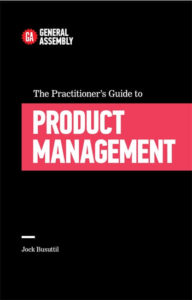
Why aren’t sales selling my new product?
There are many reasons why sales may be holding back on your new product. As we all know, salespeople are by nature shy, retiring types, who need constant reassurance. You need to encourage and nurture them, delicate little flowers that they are. Or at the very least, restrain the urge to run screaming at them with a baseball bat held aloft.
Here are some of the blatant excuses reasons I’ve found so far:
- They don’t like being the first to try to sell something new.
- They’ve not had enough practice selling it and so lack confidence.
- The product commission is less attractive to them than other products they could be selling, with which they’re more familiar.
- They can’t articulate the benefits of the product to the customer convincingly.
- They can’t meet common objections.
- They don’t see themselves paying for the product, so don’t see the customer doing so either.
- They have too many other products to sell.
- They only sell products that don’t exist yet, or which they’ve been specifically prohibited from selling anymore (my personal favourite).
- They don’t understand what the product is or does.
- They don’t have the brochures, handouts or the free branded USB sticks they need to give to the customer.
- They don’t have the product installed on their laptop (so therefore it doesn’t exist in their minds, natch).
- They have a problem with the product manager.
- They don’t understand what are the challenges of their target market.
- They’re not good at products with long / short / mid-length deal cycles (natch).
And here’s the bitter pill: as the product manager, you’re going to have to sort the legitimate reasons from the excuses. More importantly, it’s also going to be your responsibility to help the sales team overcome their apparent shyness.
So what can you be doing to help? #
- Train the sales teams on what the product is and does, which customers will need it and why. Get them hands-on with your product. Refresh and add to their knowledge frequently, in small chunks of information.
- Give the sales teams cribsheets they can stick to their screen, the inside of their scribble pad or on their signed photo of themselves. These should cover key selling points, how to win against competitors, pricing and handy soundbites they can quote in meetings.
- Allocate time to helping sales with their first few deals. Show them how to demonstrate the benefits of the product and answer customer objections.
- Make sure that they have an appropriate incentive to get your product moving. Give them reasons to break out of their comfort zone. Selling something new is much more effort than something familiar, tried and tested. If you can influence sales targets, make sure they’re achievable and appropriate.
- Get executive sponsorship from someone senior in sales to ensure you’re not just a lone voice howling into the wind (sorry, it can feel that way sometimes).
As a final thought, although it’s usual to be exasperated with sales, remember that they are primarily responsible for getting your product out there. For every “yes” they’ve probably brazened out twenty “no’s”.
So if you think you can sell the product better than they can, change career and give it a go. Alternatively, make their life easier and later make sure everyone knows who manages such a successful product.


Heard all these and more over the years and probably used them a few times when I was on that side of the biz.
Unless your product has the potential to supplant the tow or three others they really know how to sell, then you have a constant uphill battle. Also, don’t underestimate the power of the comp plan. Higher commission rates translate directly into “Sales Management wants me to sell these and NOT those.”
Can’t emphasize the power of the crib sheet enough. I put together one for my product at my last company that instantly became the standard for the department. It’s a simple construct: what does it do (25 words), what problems does it solve, who is a good propsect, what benefits they will receive, how does it compare against competition, top 3 objections, sample probing questions. That’s what most sales people will need to get going. Clear, concise, no BS.
Tj